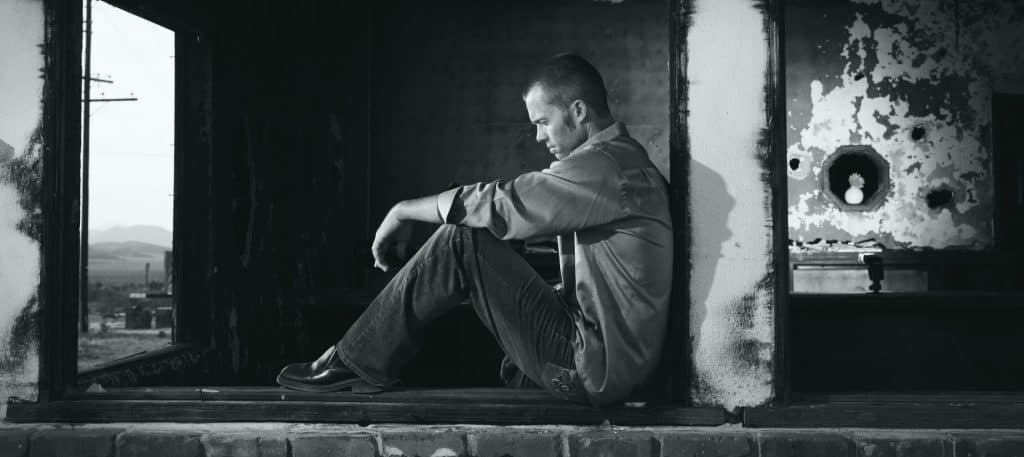I used to stare at myself in the mirror and wonder, “Who even are you anymore?”
After years of being told I was too much, too emotional, too dramatic, believing in myself felt impossible.
Narcissistic abuse doesn’t just break your heart. It breaks your identity. It chips away at your self-worth until all that’s left is a version of you shaped by someone else’s lies.
You stop trusting your gut. You second-guess your every move. And worst of all, you believe them when they say you’ll never be enough.
But here’s the truth I wish someone told me back then: you’re not broken, you’re buried.
Under all that doubt is a version of you that’s still strong, still whole, and ready to rise.
Today, I want to dive deep into why self-belief feels so far away after narcissistic abuse and how to start reclaiming it again, piece by piece.
Table of Contents
Why Narcissistic Abuse Destroys Your Ability to Believe in Yourself?

When someone repeatedly tells you that you’re the problem, eventually… You believe them.
That’s the brutal reality of narcissistic abuse. It’s not always loud. Sometimes it’s silent manipulation, subtle digs, or backhanded compliments that make you question your every move.
You start walking on eggshells, not because you’re dramatic but because you’ve been conditioned to survive.
Over time, this abuse rewires your brain.
You no longer ask, “Is this right?”
You ask, “Will this upset them?”
Your self-belief doesn’t vanish overnight. It’s chipped away in small moments:
- When they twist your words and call you “crazy”
- When your emotions are mocked or minimized
- When you start apologizing just for existing
And what’s left is a version of you that questions everything, including your own worth.
But here’s what they don’t want you to realize:
You weren’t too much. They were too small to handle your light.
Rebuilding self-belief isn’t about becoming someone new.
It’s about coming home to who you were before the gaslighting, the guilt, and the emotional warfare.
The version of you that trusted her gut. That dreamed without apology. She believed she deserved more.
And you do.
5 Lies Narcissists Plant That Kill Your Confidence

Narcissists don’t just want to control you. They want to control the way you see yourself.
They plant lies so subtly, so consistently, that after a while… You repeat them to yourself. You defend them. You even believe them.
Let’s break down the five most common lies they use to shatter your self-belief:
1. “You’re too sensitive.”
Translation: How dare you call me out on my behavior?
They say this when you cry, when you express hurt, or when you finally stand up for yourself. Over time, it makes you shut down and question your feelings, even though they were valid all along.
2. “You’re not good enough.”
Sometimes said outright. Other times are implied with silence, comparison, or constant criticism.
It’s a tactic to keep you stuck, small, and dependent on their approval.
3. “You can’t survive without me.”
A classic line used to control and isolate you. Whether it’s financial, emotional, or social, this lie keeps you afraid of walking away.
Spoiler: You can survive. And you’ll thrive.
4. “Everyone else agrees with me.”
They love triangulating. “Even your sister thinks you’re dramatic.”
“Your boss told me you’re difficult.”
They weaponize fake consensus to make you doubt your reality.
5. “You’re remembering it wrong.”
This is gaslighting in its purest form.
You know what happened. But they’ll deny it until you stop trusting your own memory.
What Rebuilding Self-Belief Actually Looks Like (After Narcissistic Abuse)?

Rebuilding your confidence after narcissistic abuse isn’t about affirmations in the mirror, though those can help. It’s about rewiring your inner voice after years of hearing someone else’s.
It’s messy. It’s slow. And sometimes it feels like starting from scratch.
But it’s also powerful as hell.
Here’s what it actually looks like:
You start questioning the voices in your head.
Instead of just accepting the “I’m too much” narrative, you pause and ask: Wait… who told me that?
You stop over-explaining yourself.
You realize you don’t need to justify every boundary or every “no.” Your worth isn’t up for debate.
You make decisions without begging for validation.
At first, it feels terrifying. But over time, choosing for yourself becomes second nature. Like a muscle you’re finally learning to flex.
You trust your emotions again.
You stop labeling your anger or sadness as “too dramatic” and start seeing them as signals, not flaws.
You forgive yourself for what you didn’t know back then.
You stop beating yourself up for staying, for tolerating, for trying to fix someone who never wanted to change.
You don’t rebuild self-belief overnight.
But every time you speak your truth, even if your voice shakes, you reclaim a part of you they tried to erase.
And eventually? You don’t just believe in yourself again. You trust yourself enough to never let anyone undo you again.
How to Handle Triggers That Make You Doubt Yourself?

Even after you’ve cut off the narcissist, even after months or years of healing, the doubt still sneaks in.
You set a boundary and suddenly feel guilty.
You speak your truth and immediately second-guess yourself.
You hear someone raise their voice, and your body tightens like it used to.
That’s not weakness. That’s trauma memory.
And it doesn’t mean you’re broken it means your nervous system is still on high alert, doing what it was trained to do: protect you.
Here’s how to handle those triggers without spiraling back into self-doubt:
1. Name the Trigger in Real Time
Say it out loud or write it down:
“I’m feeling triggered because this reminds me of how my ex used to make me feel invisible.”
Naming it separates the present from the past. It tells your brain: This isn’t then. This is now.
2. Ground Yourself in the Present
Use grounding techniques like deep breathing, touching something cold, or stating five things you see around you. Bring yourself out of the memory and back into your body.
3. Speak to Yourself the Way You Needed Back Then
Replace the voice in your head with one that loves and protects you:
“You’re not overreacting. Your feelings are valid. You don’t need to explain yourself to anyone.”
4. Don’t Explain. Reaffirm.
When someone challenges your boundary, you don’t owe them a breakdown of your trauma history. A simple, “This is what I need right now,” is enough.
5. Give Yourself Credit for Not Collapsing
Just noticing the trigger and choosing to respond differently is a win.
Every time you do it, you’re rewiring your nervous system and rebuilding your power.
Healing isn’t about avoiding triggers. It’s about meeting them with strength and self-compassion.
The Silent Power of Believing in Yourself Again After Narcissistic Abuse

Believing in yourself again doesn’t always look loud or Instagram-worthy.
Sometimes, it looks like not texting them back.
Sometimes, it’s deleting the apology you were about to send.
Sometimes, it’s simply breathing through a moment where you would’ve once broken down.
Self-belief after narcissistic abuse isn’t a lightning bolt, it’s a slow, steady fire you learn to keep alive on your own.
And its power is in the quiet choices you make every single day.
It’s choosing yourself when no one’s clapping.
It’s holding your boundaries when guilt is clawing at you.
It’s speaking up even when your voice still shakes.
And sometimes, it’s just getting through the damn day without doubting your worth.
That’s not weakness. That’s strength built from the ashes.
Because let’s be real, narcissists didn’t just want control. They wanted you to be dependent. Unsure. Powerless.
So every act of self-trust, no matter how small, is rebellion.
When you say “no” without explaining, that’s rebellion.
When you celebrate your win without waiting for someone else to validate it, that’s rebellion.
When you choose peace over chaos, clarity over confusion, and healing over history—that’s revolution.
The power of believing in yourself again isn’t in being fearless.
It’s in showing up for yourself, even when fear is screaming in your ear.
You don’t need to become a whole new person to be worthy.
You just need to come back to the version of you they tried to erase.
And the more you trust that version? The more unstoppable you become.
Quick Recap and Key Takeaway
You were trained to doubt yourself. Conditioned to apologize for your feelings. Taught to trust their version of the truth over your own. So, of course, self-belief feels foreign. Of course,e it feels like a fight.
But here’s what this journey has shown you:
- Narcissists planted lies like “you’re too sensitive” and “you’ll never make it without me”—to keep you small.
- Rebuilding confidence isn’t about perfection. It’s about choosing yourself, every day, in small, powerful ways.
- Triggers don’t mean you’re failing. They’re just old wounds asking for new responses.
- Real strength isn’t loud. It’s silent. It’s in the quiet courage to set a boundary, trust your gut, and stop over-explaining.
The key takeaway?
Self-belief after abuse isn’t just healing, it’s rebellion.
Every time you stop chasing their approval and start trusting your own voice, you take your power back.
So if it feels hard, that’s okay. It’s not impossible. It’s just unfamiliar. And with every step forward, you become more of who you were always meant to be.
Bottom Line: You’re Not Lost. You’re Becoming.
If you’re still struggling to believe in yourself, even after cutting off the narcissist, you’re not alone, and you’re not behind.
What you’re feeling isn’t weakness. It’s what healing actually looks like after years of being gaslit, dismissed, and made to feel like your needs didn’t matter.
The truth is, your confidence was never destroyed. It was buried under their lies, their manipulation, their constant rewriting of your reality.
And now? You’re finally digging it out. One boundary at a time. One small act of self-trust at a time.
It’s not easy. But it’s worth it. Because of the version of you they tried to erase? She’s still in there, stronger, wiser, and done with settling for crumbs.
That’s why I created The Next Chapter.
It’s a step-by-step healing roadmap for survivors ready to stop doubting themselves, start trusting their voice again, and finally build a life that feels like freedom.
If you’re ready to rise from everything they tried to break, this is your time. And you don’t have to do it alone.
Related Posts:



Nice blog informative post…Thank you
That sums it up so well. Thank you.